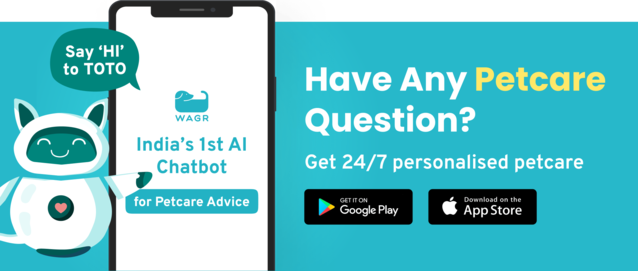For many of us, food is what we reach out for whenever we’re overwhelmed with any emotion. Happy about something? Let’s go someplace nice to eat. Sad or depressed? Let’s order in. Most pet parents follow the same approach while feeding their pets. As a gesture of love and affection, we often end up feeding and treating our pets too often, putting them at high risk for obesity.
Among house pets, obesity is spreading like wildfire; according to a survey conducted by the Association for Pet Obesity Prevention (APOP) in 2018, 55.8% of pet dogs and 59.5% of pet cats are considered obese by their vets. If you feel your pet might be part of that statistic, here are some ways you can help them:
Cutting back on the calories

Cats can even do with one meal a day. Studies have shown that the majority of cats can easily thrive the whole day on a single meal, particularly if they’re already obese.
Encouraging them to exercise

When it comes to pet cats, this task might seem more difficult, considering how most of them enjoy being couch potatoes. Since it’s nearly impossible to engage your cat in any 30-minute-long physical activity at once engage them for 10-15 minutes twice or thrice a day through toys and puzzles geared to keep them active.
Looking out for diabetes
Diabetes is not just a threat to humans but also to cats and dogs. Several studies have concluded that one out of every 300 dogs and 230 cats is likely to suffer from diabetes.
Changing their feeder with puzzle feeders

-
Prioritize spending more time with them. Loneliness is among the leading causes of depression; so, you must ensure that your pet is not left alone for a long time.
-
Encourage them to play with you. Be it a cat or a dog, they both enjoy entertaining their pet parents and being entertained by them. They’ll naturally be happier if you spend time playing with them and, thus, less depressed.
-
Consider getting another pet. Sometimes, it’s not easy to dedicate more time to your pets. We get it. But if you cannot keep them company for long periods, why not bring home someone else who can? Many pets have overcome depression successfully with another pet by their side, and your pet can, too.
-
Get an expert’s help. If you feel like the matter is getting out of hand, consult with the vet right away. They’ll likely recommend you to see an animal behaviorist or therapist who is well-versed in tackling depressed animals.
Your pets are more than just your companions; they’re also your responsibility. While it is easy for pets to grow overweight without us noticing, if you follow some simple tricks, you can help prevent obesity in them just as easily.











